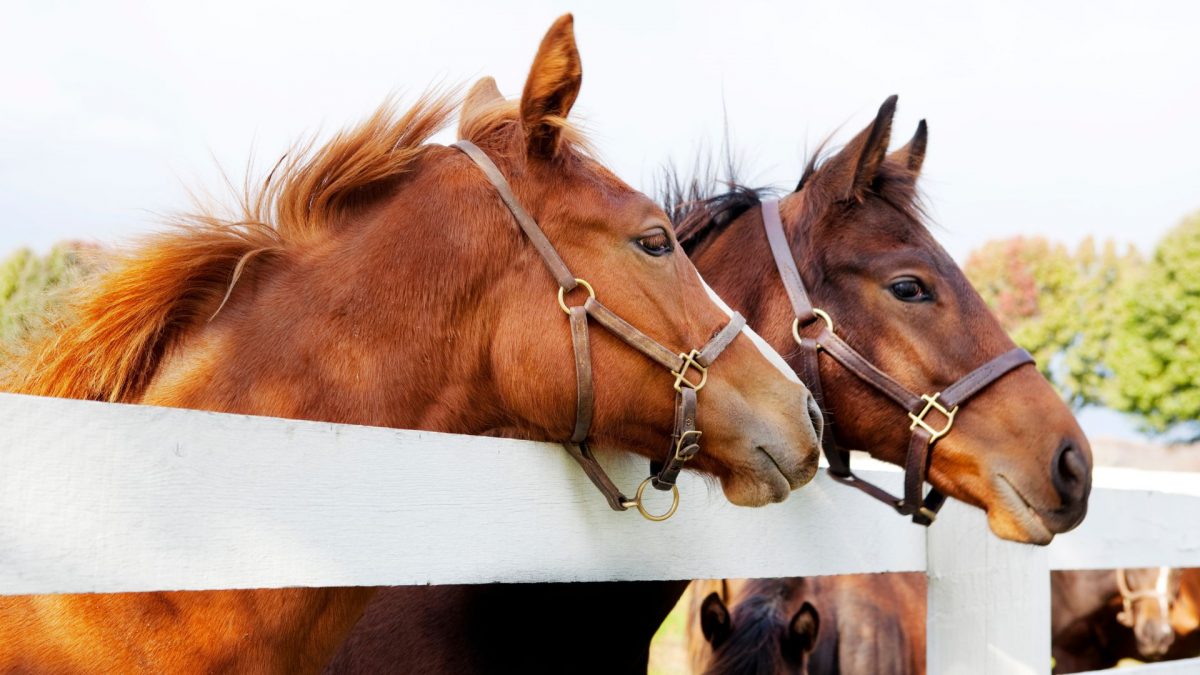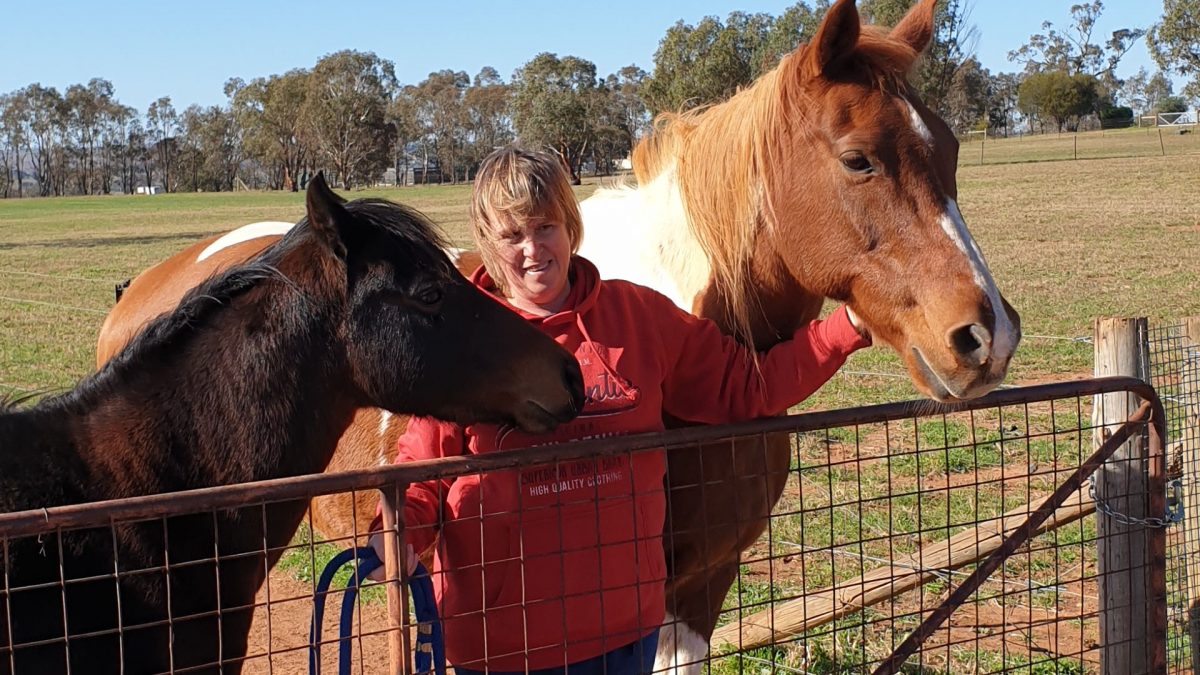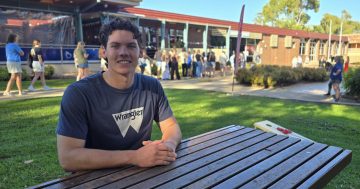
Thanks to funding from the Hong Kong Jockey Club (HKJC) Equine Welfare Foundation the new study will address wellbeing concerns in the racing industry, a sector committed to ensuring equine welfare is a strategic priority. Image: Charles Sturt University.
Certain types of snorts, whinnies and enthusiastic approaches are unmistakable clues to an equine’s positive state of mind but an international investigation which involves some of Wagga’s Charles Sturt University (CSU) academics may reveal more.
A three-year research program examining how racehorses express positive emotions in their interaction with humans has been green-lit thanks to funding from the Hong Kong Jockey Club (HKJC) Equine Welfare Foundation.
Aimed at improving equine welfare – with a focus on the racehorse industry – the study will develop methods of assessing welfare that can be used to optimise the management of any horse that interacts with humans.
Wagga’s CSU academics will be collaborating on the project with researchers from the Eastern Institute of Technology and Te Pukenga in New Zealand and Hartpury University in the United Kingdom.
The three-year study will use a mixture of research approaches, including a Delphi study to assess horse welfare and a series of field-based experiments to evaluate equine emotional state in controlled and industry conditions.
The Delphi method is a process used to arrive at a group opinion or decision by surveying a panel of experts. Experts respond to several rounds of questionnaires, and the responses are aggregated and shared with the group after each round.
The project will produce practical tools that will enable those working with horses to become more informed about how their horse is feeling to improve their management and improve performance outcomes.

Charles Sturt University’s Professor of Equine Science and acting head of the School of Agricultural, Environmental and Veterinary Sciences Professor Hayley Randle says people are taking horses’ mental wellbeing much more seriously than ever before.
Acting head of CSU’s School of Agricultural, Environmental and Veterinary Sciences, and Professor of Equine Science Hayley Randle said she was grateful for the funding from the HKJC and for Charles Sturt to be able to lead this study.
“Providing funding for this kind of research demonstrates the commitment of the HKJC to supporting rigorous research that seeks to provide objective evidence of positive emotions in horses,” she said.
“This is particularly important as the way that welfare is measured is changing.
“People are taking horses’ mental wellbeing much more seriously than ever before, and this means that the industry and everyone working in it has as well.”
Professor Randle said the project added to equine welfare research already conducted by all team members across the globe.
Other researchers on this project include Associate Professor Jane Williams from Hartpury University, Professor of One Welfare Natalie Waran from New Zealand, and Charles Sturt PhD graduate Dr Cathrynne Henshall.
The three academics had previously teamed up in October 2021 when they hosted an online international conference discussing strategies to improve horse quality of life.
The conference brought together horse riders, pony clubs, riding clubs, coaches, trainers and equine students with academics, researchers and scientists to showcase how evidence-informed approaches can advance equestrian practice and improve equine quality of life.
Topics ranged from the aftercare of retired racehorses, equine emotional states, and the use of equipment and technology in equestrianism and horse training.
Professor Waran was appointed last year by the Federation Equestre Internationale (FEI), the world governing body for horse sport, to chair the Independent Equine Ethics and Wellbeing Commission.
She said this new study was set to address welfare concerns in the racing industry, a sector committed to ensuring equine welfare is a strategic priority.
“This means that we need to know a lot more about how racehorses feel about their life experiences on and off the track, and how coping with the living, travelling and working environment impacts upon their welfare,” Professor Waran explained.
She said that to properly assess a horse’s welfare, there was a need to develop tools that provide information about not just negative emotions, such as fear or stress, but also positive ones such as pleasure and contentment.








